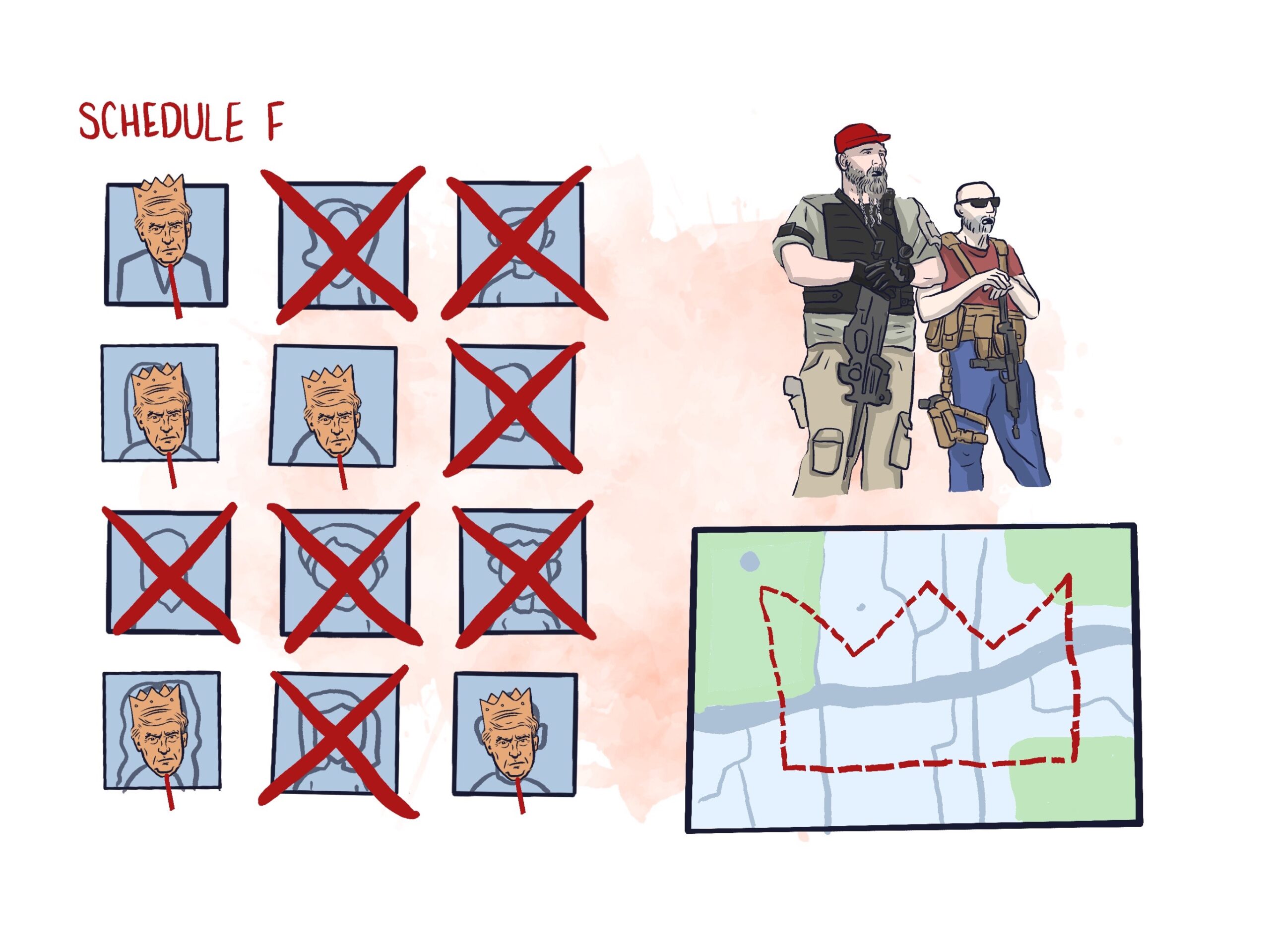You decide it’s best to stay small and not talk openly about your work. Being quiet allows you to have some intimate conversations with people inside the military you might miss if you are more open. Plus, you see many friends burning out by constantly “doing more” to halt the ongoing Trump pronouncements. You resist that tendency. You do your small part and feel good about it.


Your organizing with veteran families gains quiet victories that the history books will never cover. One wife of a colonel confides in you that she worries her husband is sympathizing too much with those who urge fully enacting Trump’s orders. But you give her some suggestions of things to do to help steady him. Later, she says it worked. Several families of noncommissioned officers decide to expose some Trump extremists in their ranks who plan to use the cover of a right-wing attack on local Black businesses for more extreme efforts.
Over the next year, you see small political changes around you. But it feels like barely a dent amidst the national scene. Despite lower poll numbers, Trump continues filling the government with his loyalists. The courts eventually approve his Schedule F reclassification — 50,000 government workers are now being systematically replaced by Trump loyalists. Bureaucratic fights rage across many institutions. Trump installs judges across the country who gerrymander election maps in multiple states to give Republicans long-term power. But your heart tears as you see the language of fear and violence growing: immigrant communities terrified by right-wing militia patrols, increased violence against peaceful protestors, attacks on emissions standards, and exaggerated calls for political arrests. But at least the military is not out among them.

